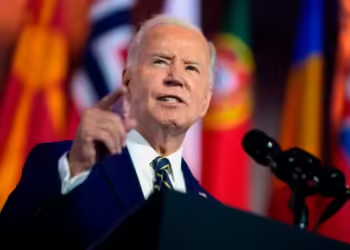House Allots 8,000 More Visas for Afghan Allies, 20,000 Applicants So Far
Newsweek
BY JULIA MARNIN
The House on Thursday voted to allot 8,000 more visas for Afghan allies that assisted the U.S. during the war in Afghanistan, with President Joe Biden’s administration saying there are 20,000 visa applicants so far, the Associated Press reported.
The bill by Colorado Democratic Representative Jason Crow, an Afghanistan veteran, passed Thursday with a 407-16 vote and heads to the Senate. It provides additional visas for Afghan translators and others that worked with U.S. forces and civilians in the country as part of 26,500 special visas already allocated. The move comes to protect those against possible retribution from the Taliban amid a U.S. troop withdrawal as the insurgent group fights for power in Afghanistan.
“We must bring back…all the people who were so important to us in combat,” Florida Republican Representative Neal Dunn, a Vietnam war veteran, said to his fellow lawmakers. He described how Vietnamese U.S. allies during the war were met with punishment after U.S. forces left.
“Please do not abandon friends of America again,” he said.
The Pentagon reported the U.S. troop withdrawal from Afghanistan is 95 percent finished and will be done by August 31.
The House vote cited the urgency of protecting those on-the-ground allies from Taliban retaliation as the U.S. military withdrawal enters its final weeks.
Dunn evoked the scenes of the U.S. military withdrawal from Vietnam, which left many Vietnamese who’d worked with American forces fearing—and sometimes meeting—death and detention.
“We cannot do this again. We must not do this again,” Neal said, urging fellow lawmakers to vote for the bill.
Crow is a former Army Ranger who fought in Afghanistan. The bill also eases some requirements for the visas.
Biden decreed an end to the U.S. military role in Afghanistan by September 11, concluding a U.S. military effort that early on succeeded in its main goal of crushing the Afghanistan-based al-Qaida plotters of the 2001 attacks on the U.S., but struggled to quell Afghanistan’s former Taliban rulers and stabilize a Kabul-based elected government.
The last weeks of withdrawal leave the Taliban apparently holding “strategic momentum” in the fight for control of Afghanistan as they put increasing pressure on key cities, Army Gen. Mark Milley, chairman of the Joint Chiefs of Staff, said Wednesday.
The Biden administration said that out of the 20,000 applicants so far, half have not completed initial stages of review for the visas. The U.S. is also allowing former Afghan employees to bring in close family members.









